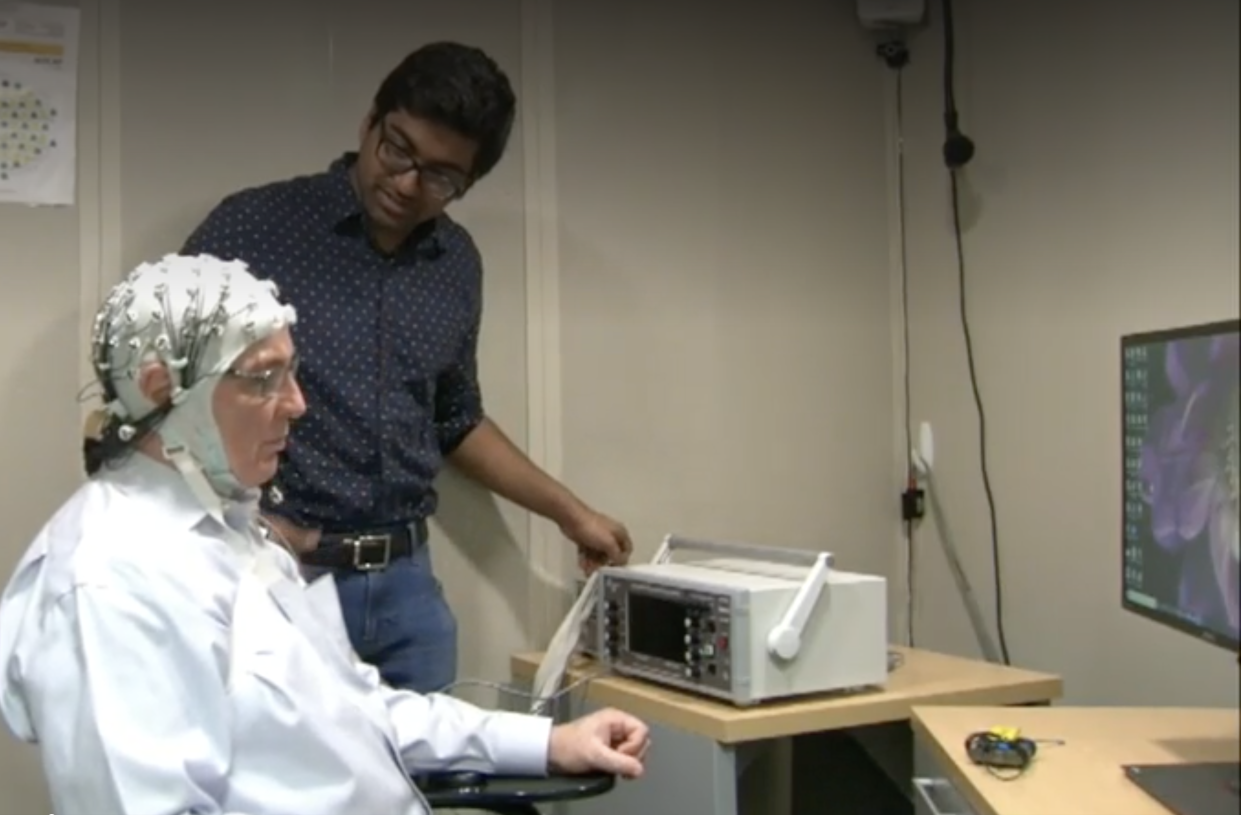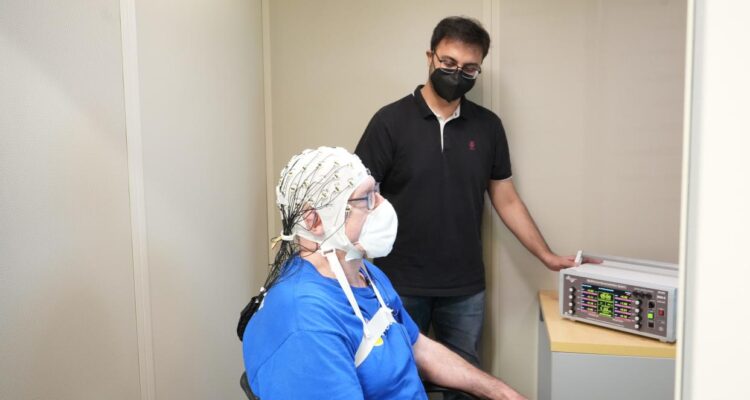In a new study, researchers tried using low-dose electrical pulses on seniors to see if it would improve memory.
Cut to the chase: the study found that brain stimulation could make a ‘moderate to large’ difference.
For four consecutive days, 150 senior citizens pulled on a swim-like cap and allowed parts of their brain to be bathed with low-dose electrical pulses. During 20-minute sessions, they were given five lists of 20 words each and asked to recall them.

After the treatment, nearly all the participants did better on memory tests than they had before and better than the controls. People who scored worse at the beginning showed the most improvement.
As the study published Monday in Nature Neuroscience showed that the memory benefits lasted a month later.

How does it work?
The cap’s electrodes deliver weak electrical pulses to specific areas of the brain previously known to be involved in different types of memory.
The ‘energy oscillations’ trigger brain cells to activate, restoring their “plasticity,” or ability to change. This also allows them to carry the improvements forward, even though the simulation ends, said Shrey Grover, the Ph.D. candidate who led the research.

Researchers are still figuring out the right “dose” and how long the benefits might last, but they hope that eventually, their technology could become available for at-home use.
But before you rush to sign up for this study, doctors caution that forgetting is an important part of working memory.
“Forgetting something is not a bug of memory, it’s a feature,” added Dr. Grover. “You have to forget in order to learn. You don’t want to overly improve memory in people who are otherwise healthy.”

